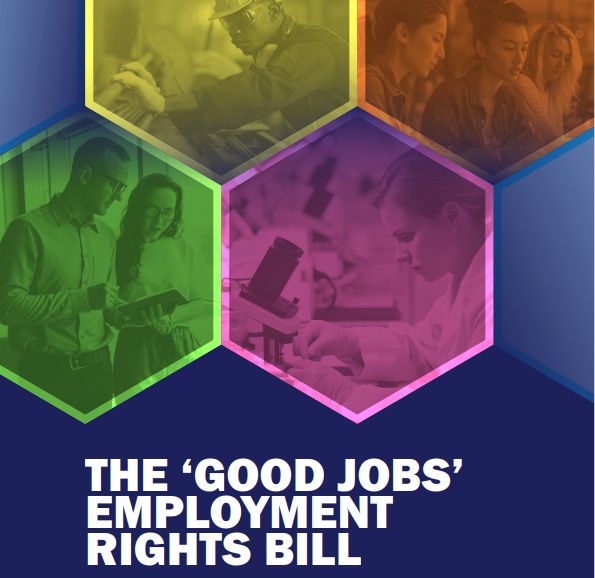The Department of the Economy & NISRA have published the Good Jobs in Northern Ireland 2025 statistics, which provides the proportion of “good jobs” in Northern Ireland between 2017 and 2025, focusing on a variety of key cohorts, such as sex, age, work pattern and government district. For manufacturing firms, and wider employers, these figures arrive at a key moment, as the NI Executive prepares to bring the Good Jobs and Employment Rights Bill to the Assembly, which we will discuss at our upcoming Town Hall meeting, which you register for here.
The data gives employers a useful benchmark and highlights where Northern Ireland is making progress, and also where gaps remain.
Several indicators in the tables point to the underlying strengths of our firms and the sector:
- Good jobs across the manufacturing sector are listed at being 80.6%, making the sector leaders across the economy.
- Higher skilled positions and technical roles perform strongly, with jobs such as process and plant operations, engineering related roles and technical supervisory posts all featuring.
- Mid Ulster and Mid & East Antrim, areas of strong manufacturing bases, show solid performance in job quality, supported by higher rates of stable employment.
- Larger firms show higher good jobs rates than smaller firms, reflecting stronger HR structures, better pay frameworks and progression routes.
Why this Matters
With the new legislation on the way, employers who already operate fair contracts, transparent pay structures and responsible employment practices are in a strong position, but the proposed Good Jobs Bill has some changes which employers need to be aware of, especially around representation in the workplace. A summary of proposed changes include:
- To make Unions more accessible for workers by reducing barriers to union recognition.
- Unions will have the right to request access directly into a workplace (for instance, the production floor or the canteen), including digital access (internal email systems, screens), to recruit membership where it does not currently exist.
- Union recognition will be reduced from 21 to 10 workers.
- The legislation supports moves towards collective bargaining (across industries, job roles) with unions on wages, conditions etc.
- To permit e-balloting systems as an alternative to postal ballot.
- Reduce the percentage of employees from 10% to 2% required to make a request for an ICE agreement (to be informed about the business’s economic situation and about decisions likely to lead to changes in work organisation or contractual relations) and reduce the minimum number of employees required from 15 to 10.
It is vitally important that manufacturers have sight of and understand what changes may be coming and potentially prepare for all these changes. The Minister will be in attendance at the Townhall event, and we encourage all employers to sign up. You can register here

